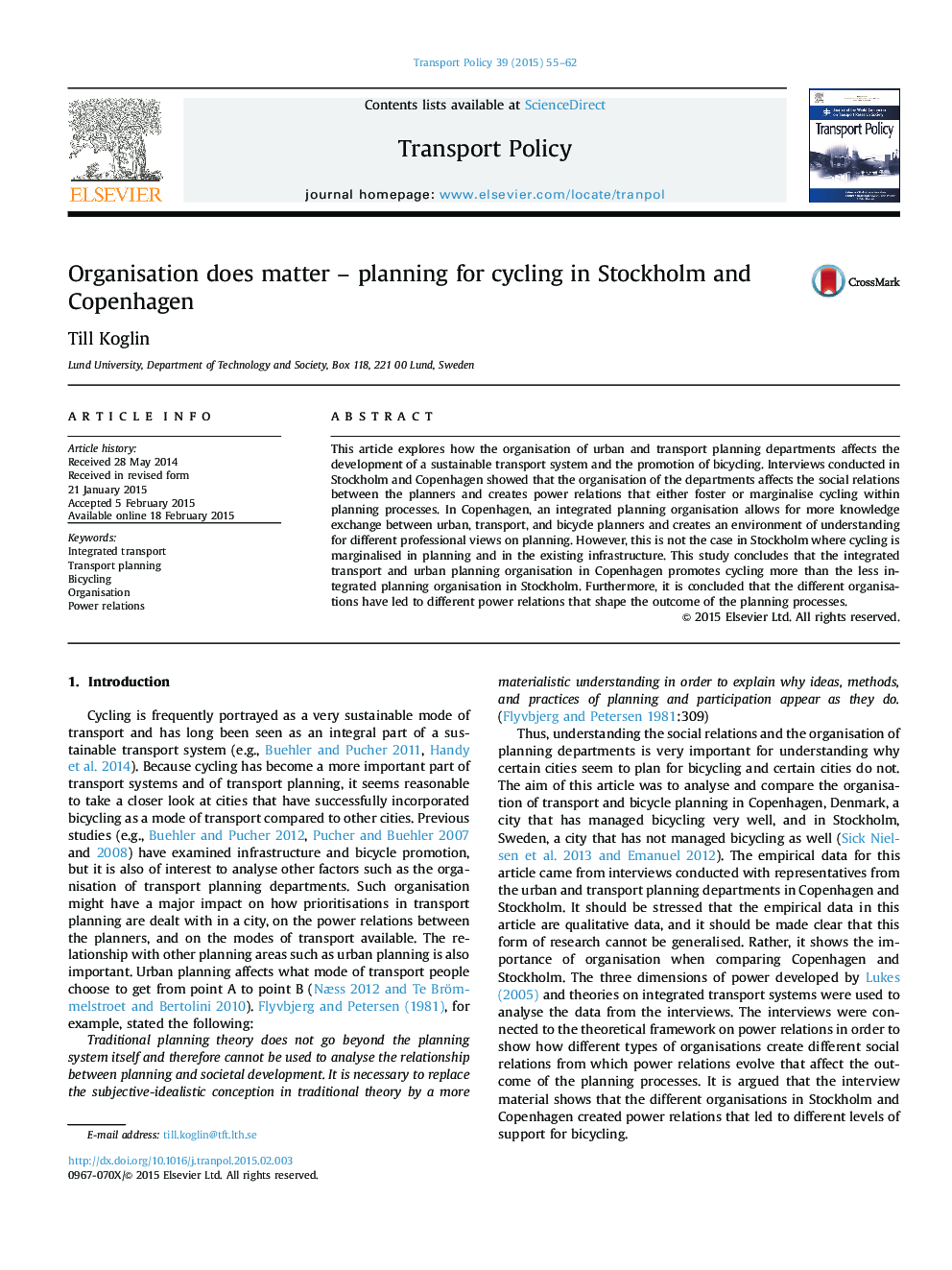| Article ID | Journal | Published Year | Pages | File Type |
|---|---|---|---|---|
| 1064903 | Transport Policy | 2015 | 8 Pages |
•This study shows that the organisation of transport and urban planning matters for planning for cycling.•Through integrating different views on planning, power is more equally distributed between urban and transport planners.•Copenhagen organises urban and transport planning in the same department, Stockholm in different departments.•Through the organisation in Copenhagen cycling is less marginalised in planning compared to Stockholm.•In Copenhagen's organisation knowledge is shared among planners.
This article explores how the organisation of urban and transport planning departments affects the development of a sustainable transport system and the promotion of bicycling. Interviews conducted in Stockholm and Copenhagen showed that the organisation of the departments affects the social relations between the planners and creates power relations that either foster or marginalise cycling within planning processes. In Copenhagen, an integrated planning organisation allows for more knowledge exchange between urban, transport, and bicycle planners and creates an environment of understanding for different professional views on planning. However, this is not the case in Stockholm where cycling is marginalised in planning and in the existing infrastructure. This study concludes that the integrated transport and urban planning organisation in Copenhagen promotes cycling more than the less integrated planning organisation in Stockholm. Furthermore, it is concluded that the different organisations have led to different power relations that shape the outcome of the planning processes.
